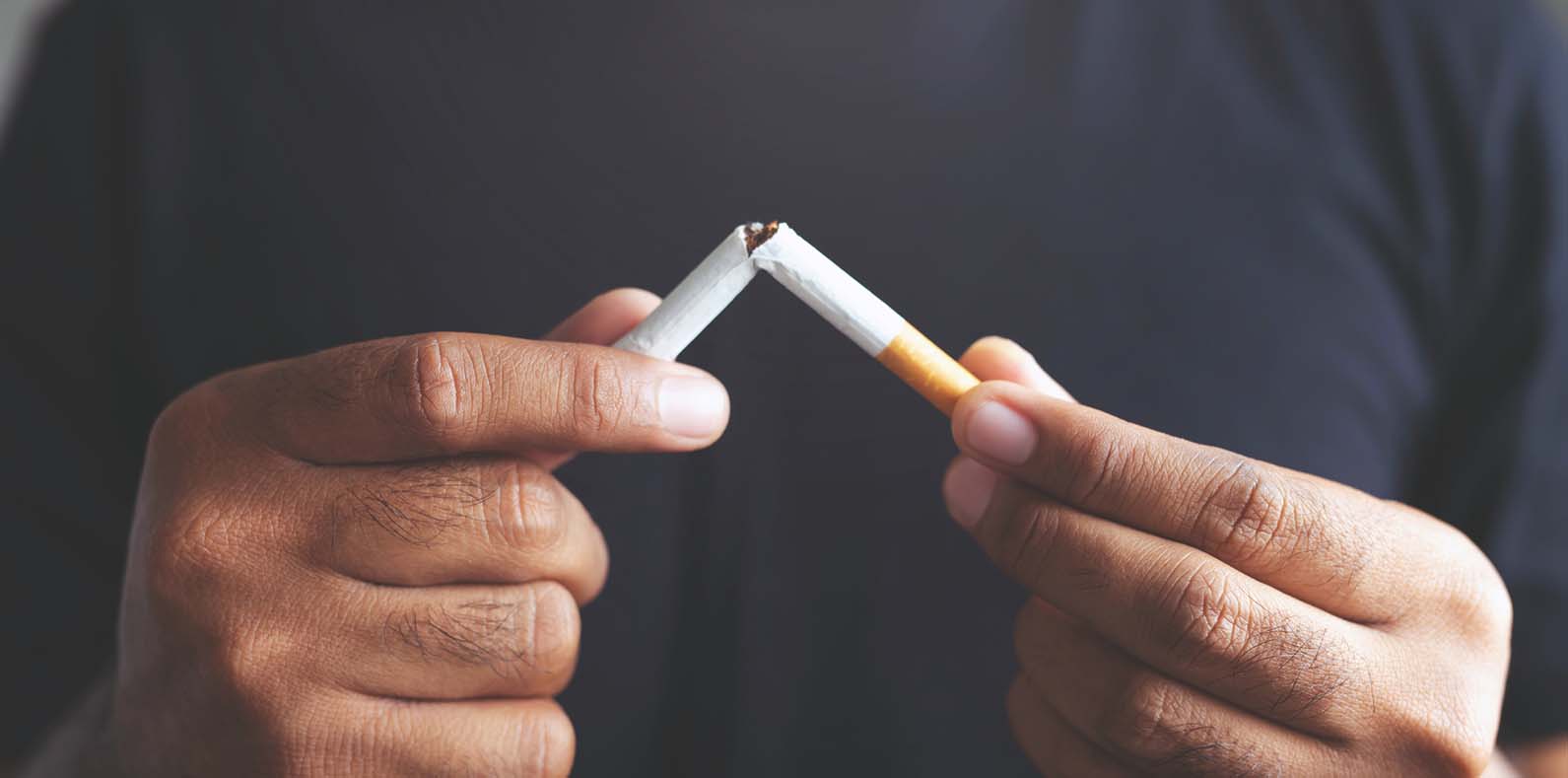What Happens When you Quit Smoking?
By Megan O'Leary |
Smoking can increase the risk of developing health concerns. The sooner you quit smoking, the greater long-term health benefits you will enjoy. Continue reading as we detail what happens to your body right after you quit smoking.

What Happens to Your Body Right After you Quit Smoking?
Smoking is one of the leading causes of preventable death in the United States and increases your risk of lung cancer. Quitting can help undo some of the damage and improve symptoms such as shortness of breath and even chest pain. Certain improvements take time, but the human body can have an incredible ability to heal itself after you quit smoking. Follow us as we break down what happens to the body immediately after you quit smoking.
2 Weeks After Quitting Smoking
After the first 72 hours, your peak withdrawal symptoms will start to decrease, although the cigarette cravings can persist. When you quit smoking tobacco, your body and brain have to get used to not having nicotine.
In the days and weeks that follow, you should start breathing easier, your blood circulation should start to improve almost immediately, and your cravings should ease. Other health benefits of good circulation are better pulse rate, and healthier blood pressure and blood oxygen levels.
3 Months After Quitting Smoking Side Effects
Over the first few months, you will experience many of the more obvious improvements in lung function. Three months after you quit smoking, levels of dopamine return to normal. Improvements such as better circulation, lower blood pressure and heart rate, better oxygen levels, and lung function all reduce your risk of a heart attack.
6 Months After Quit Smoking
After six months of quitting, many smokers often find they’re able to handle stress better and also control their incessant need to smoke. Former smokers may also notice less coughing and less mucus and/or phlegm. This is due to the airways being much less inflamed without constant exposure to cigarette smoke and chemicals.
1 Year After Quitting
Your risk of both heart disease and heart attack drops to about half that of a smoker. The improvements you see will depend on the severity of your general lung and health condition.
Weight gain is another common concern among former smokers. After one year after you quit smoking, patients have been known to gain roughly 8.8 to 11 pounds. Most of the weight gain typically occurs in the first three months without a cigarette. There are many other factors that influence weight gain such as stress and age but avoiding the temptation to replace cigarettes with food will help mitigate weight gain.
5 Years After You Quit Smoking
After 5 years, your risk of mouth, throat, esophageal, and bladder cancers will be just half of what it was when you smoked. Your risk of cervical cancer will fall to that of a nonsmoker. Heavy smoking speeds up the formation of blood clots that can lead to a stroke. However, in as few as 5 years after you quit, your risk of stroke could fall to the same as that of someone who doesn’t smoke.
Side Effects of Stopping Smoking After 50 Years
Although you can’t necessarily undo the structural damage smoking causes to your lungs, once you’ve stopped smoking your lung function can improve significantly. Your lungs detoxify themselves through self-cleaning abilities after you quit smoking, although the extent to which they heal depends on your overall health and your existing lung damage.
Lung Cancer Concerns
As lung cancer awareness grows, understanding the symptoms of the disease can help you detect it earlier. The common symptoms of lung cancer can be mistaken for less-fatal illnesses and are often overlooked.
Lung cancer patients typically learn of their diagnosis during stage 3, which is considered an advanced stage. Although lung cancer is considered the leading cause of cancer death in the US, if it is treated properly there is hope for recovery.
Do All Smokers Develop Lung Cancer?
Recent results from a study published by Nature Genetics reveal why some longtime smokers don’t develop lung cancer. It was discovered that while all smokers tend to have more cell mutations, the DNA repair mechanism in some patients seemed to be stronger. The somatic mutation in smokers may help doctors identify smokers who face a higher risk of developing lung cancer.
Negative Effects of Quitting Smoking
The side effects of quitting smoking can be extreme for some. Many people feel flu-like symptoms when withdrawing from nicotine. This is because when you quit smoking it affects every system in your body. When you quit, your body needs to adjust to not having nicotine. But keep in mind, that many side effects are only temporary.
Traditional Smoking vs Vaping
There is a well-known association between smoking and lung cancer, but many wonder if that includes vaping. Vaping and its effects are still new so it is challenging to link vaping to lung cancer directly. Many believe vaping e-cigarettes is a healthier alternative to traditional cigarettes, but e-cigarettes like Juuls for instance, contain many harmful chemicals associated with an increased risk of lung cancer.
Legal Help For Lung Cancer is Available
Your doctor, nurse practitioner, physician assistant, dentist, or other healthcare provider are key resources for quitting. They can help you discover what medication will work best for you and put you in contact with local resources.
They may help you craft your quit plan, offer methods to prevent slip-ups, or walk through the pros and cons of quitting nicotine. Remember, healthcare professionals are not there to judge—they’re there to help you in any way you need to achieve a smoke-free life. Contact us if you want more information on help on how to start the process.